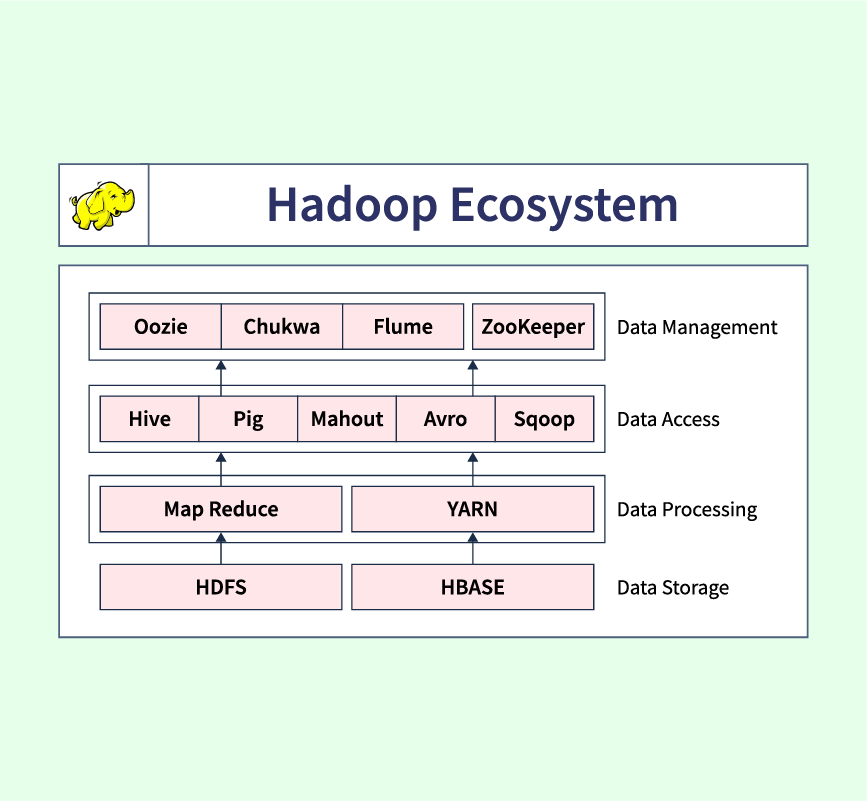The rise of big data has transformed how businesses operate, making data a key resource for decision-making and innovation. As the amount of data generated continues to grow, data science has emerged as a vital field to process, analyze, and extract valuable insights. Companies are increasingly relying on data science to stay competitive and gain a deeper understanding of their customers, markets, and operations.
In India, the demand for data science professionals has surged due to the rapid pace of digital transformation. With businesses across industries embracing data-driven strategies, the scope of data science in the country is expanding rapidly, creating abundant opportunities for skilled professionals.
What is the Scope of Data Science?
Data science involves extracting insights from large datasets through processes like data collection, cleaning, analysis, and visualization. It integrates statistics, machine learning, and data engineering, helping organizations make data-driven decisions. As businesses increasingly rely on data, the demand for data science professionals continues to grow worldwide.
According to the World Economic Forum, 11.5 million job openings for data-related roles are projected by 2026, with India emerging as a key contributor. In fact, India saw a 45% rise in demand for data science professionals in the past year. Despite the rising demand, 93,000 positions remain vacant, highlighting a significant skill gap.
The Outlook for Data Science in India
The future of data science in India looks promising, driven by rapid digital transformation and the adoption of data-driven practices across industries. With government initiatives like Digital India and the rise of cloud technologies, businesses are increasingly leveraging big data to gain competitive advantages.
India’s data science industry is projected to grow at an annual rate of 33.7%. The growing reliance on digital solutions has also boosted the need for skilled data professionals, making data science one of the fastest-growing career paths in the country. According to NASSCOM, India will require around 1.5 million data professionals by 2025, reflecting an increasing gap between demand and available talent.
Key Factors Driving Growth
- Government Initiatives: Programs like Digital India and Smart Cities promote data-centric governance.
- Boom in E-commerce and Startups: With more companies shifting online, demand for data analytics is soaring.
- AI and Cloud Adoption: Organizations are investing heavily in artificial intelligence and cloud platforms, requiring large-scale data management.
- Increased Internet Penetration: With more than 850 million internet users, data generation in India is skyrocketing, creating a need for advanced analytics.
Industries That Use Data Science
Data science plays a transformative role across various industries, helping businesses optimize operations, predict outcomes, and personalize services. Let’s explore some key sectors where data science is making an impact:
1. Healthcare
- Applications: Drug discovery, personalized treatment plans, and patient risk prediction.
- Example: AI-powered systems analyze patient records to recommend personalized healthcare solutions.
2. Agriculture
- Applications: Crop yield prediction, pest management, and resource optimization.
- Example: Predictive models help farmers decide the best planting time to maximize yields.
3. Financial Services
- Applications: Fraud detection, credit risk analysis, and algorithmic trading.
- Example: Banks use predictive models to detect suspicious transactions in real-time.
4. Retail
- Applications: Customer behavior analysis, inventory management, and targeted marketing.
- Example: Retailers use recommendation engines to suggest products based on customers’ previous purchases.
5. Energy and Utilities
- Applications: Demand forecasting, grid optimization, and preventive maintenance.
- Example: Utility companies predict peak energy demand to avoid outages and optimize distribution.
6. Transportation and Logistics
- Applications: Route optimization, supply chain management, and fleet tracking.
- Example: Logistics companies use data models to predict delivery times and improve efficiency.
7. Banking
- Applications: Customer segmentation, personalized offers, and risk management.
- Example: Banks analyze customer data to provide tailored financial products.
Across these industries, data science empowers companies to make smarter decisions and deliver better services. As the demand for actionable insights grows, data science will continue to play a critical role in driving innovation across sectors.
Careers in Data Science in India
With data science emerging as one of the fastest-growing fields, several career paths are available for professionals with the right skills. Each role focuses on different aspects of data science, creating a diverse range of opportunities.
1. Data Scientist
- Role: Develops algorithms and predictive models to analyze large datasets.
- Key Skills: Python, R, SQL, machine learning, data visualization.
- Qualification: Bachelor’s or Master’s degree in Data Science or related fields.
- Average Salary: ₹13,60,000 – ₹16,00,000 per year.
2. Machine Learning Engineer
- Role: Designs, builds, and deploys machine learning models for automation and predictions.
- Key Skills: Python, TensorFlow, PyTorch, deep learning, mathematics.
- Qualification: Strong background in computer science, AI, or data science.
- Average Salary: ₹8,50,000 – ₹12,00,000 per year.
3. Data Architect
- Role: Designs and manages an organization’s data infrastructure.
- Key Skills: Data modeling, cloud platforms, database management.
- Qualification: Expertise in computer science or information systems.
- Average Salary: ₹19,00,000 – ₹25,00,000 per year
4. Statistician
- Role: Uses statistical methods to collect, analyze, and interpret data for insights.
- Key Skills: Statistics, R, Python, data mining, probability theory.
- Qualification: Degree in statistics, mathematics, or economics.
- Average Salary: ₹6,00,000 – ₹8,00,000 per year
5. Marketing Analyst
- Role: Analyzes consumer data to develop marketing strategies and campaigns.
- Key Skills: Excel, SQL, Google Analytics, data visualization.
- Qualification: Degree in business, marketing, or analytics.
- Average Salary: ₹6,00,000 – ₹8,00,000 per year.
6. Business IT Analyst
- Role: Acts as a bridge between business teams and IT, ensuring data solutions meet business needs.
- Key Skills: Data analytics, project management, communication skills.
- Qualification: Degree in information technology, business administration, or related fields.
- Average Salary: ₹8,00,000 – ₹12,00,000 per year
India’s growing data-driven economy has created abundant opportunities in these roles. With competitive salaries and increasing demand across industries, building a career in data science offers promising prospects.
How to Build Career in Data Science in 2025
Building a career in data science requires a blend of technical skills, continuous learning, and practical experience. Below are actionable steps to help you get started on your data science journey in India by 2025:
1. Acquire Relevant Skills
- Enroll in Courses and Certifications: Platforms like Scaler, edX, and Udacity offer specialized data science programs.
- Learn Programming Languages: Master Python, R, and SQL as they are essential for data manipulation and analysis.
- Understand Machine Learning and AI: Familiarize yourself with tools like TensorFlow, Scikit-learn, and PyTorch.
- Data Visualization Tools: Gain experience with Power BI, Tableau, or Matplotlib for visualizing insights.
2. Work on Personal Projects
- Build a Portfolio: Showcase your data science skills by working on personal projects, such as building predictive models or analyzing public datasets.
- Contribute to Open-Source Projects: Join GitHub communities and contribute to open data science repositories.
3. Gain Hands-On Experience
- Internships: Apply for internships with startups or established companies to gain real-world exposure.
- Hackathons: Participate in data science competitions on platforms like Kaggle to sharpen your skills.
4. Network with Professionals
- Join Online Communities: Participate in forums like Reddit, LinkedIn groups, and Discord servers focused on data science.
- Attend Conferences and Meetups: Engage with the data science community at events to stay updated and build connections.
5. Stay Updated with Industry Trends
- Follow Thought Leaders: Keep up with industry trends by following experts on LinkedIn and Twitter.
- Continuous Learning: Stay updated on the latest tools and techniques, such as advancements in machine learning and AI.
Conclusion
Data science is becoming a crucial part of modern business strategies, driving innovation and efficiency across industries. In India, the growing demand for data-driven solutions and the rapid adoption of digital technologies have created a wide scope for data science professionals. With promising career prospects and competitive salaries, pursuing a career in data science by 2025 can open doors to numerous opportunities.
Building a career in this field requires a solid foundation in technical skills, hands-on experience, and continuous learning. As businesses increasingly rely on data for decision-making, data science will continue to play a key role in shaping the future of industries in India and beyond.


